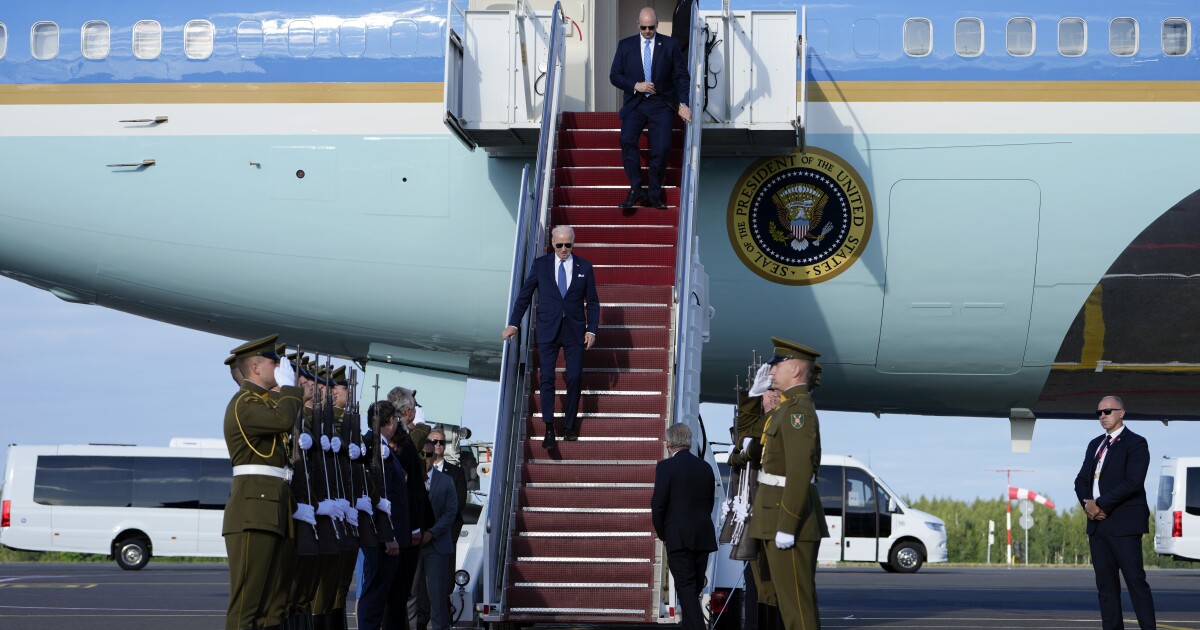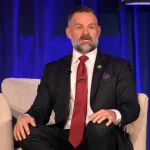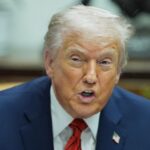

President Joe Biden will arrive at the 2023 NATO summit, this year in Vilnius, Lithuania, amid a critical juncture in Russia‘s war in Ukraine.
But as Ukraine is coming under increasing pressure to recapture territory, Biden has to contend with NATO alliance politics before domestic politics surrounding the conflict changes ahead of next year’s election.
WALL OF WASTE: BIDEN ENDING TRUMP WALL LEAVES BORDER RANCHER WITH FIELD OF ‘RUSTING’ STEEL
The outcome of the Vilnius NATO summit matters, according to Ambassador Paula Dobriansky, former undersecretary of state and now a Harvard University Belfer Center senior fellow.
“Will it send a clear, unambiguous signal that Ukraine will secure NATO membership within a precisely specified and short time period and, in the interim, provide definitive key security guarantees to deter future Russian aggression in Europe and protect U.S. national security interests?” Dobriansky asked the Washington Examiner. “Or will it send a signal of weakness and ambiguity by not doing anything beyond vague promises?”
The top priority for NATO and its partners should be helping Ukraine “fully expel” Russia, per Rebeccah Heinrichs, head of the Congressional Commission on U.S. Strategic Posture.
“Which means rallying behind the British, Polish, [and] Baltic positions, officially [walking] away from the Russia-NATO Founding Act, and then providing real, binding commitments with timelines for shoring up defenses of the alliance’s Eastern front,” Heinrichs said. “Above all, this means a permanent German brigade in Lithuania.”
The United Kingdom, Poland, and Baltic NATO member states have been more muscular in their military support of Ukraine. The Russia-NATO Founding Act reaffirms a shared commitment to European peace, creating mechanisms for consultation, cooperation, joint decision-making, and joint action.
“All discussions about Ukraine and NATO are far too premature when the alliance can’t even agree on the next steps for empowering Ukraine to win the war and on strengthening the alliance’s defenses along the areas that are most vulnerable to Russian gray zone activity,” Heinrichs, a Hudson Institute senior fellow and Vandenberg Coalition advisory board member, said.
In addition to Ukraine and approving a new NATO defense plan, for Dan Hamilton, a Brookings Institution senior fellow, other priorities include encouraging 2% gross domestic product defense spending to be the “floor” instead of the “ceiling” and conducting Indo-Pacific outreach. The Transatlantic Leadership Network president also cited French opposition to a Japanese NATO office as a potential point of tension.
As Dobriansky and Heinrichs alluded, Swedish and Ukrainian NATO membership is additionally expected to be on the agenda, though Biden downplayed Ukraine’s prospects until after the war during a TV interview last weekend. Turkish President Recep Tayyip Erdogan consented to Sweden‘s ascension on Monday despite demanding days ago that Turkey be admitted to the European Union first. Hungary is still against Sweden becoming a member.
Victoria Coates, a deputy national security adviser to former President Donald Trump, warned against another 1994 Budapest Memorandum security guarantee with Ukraine as Ukraine works toward NATO membership. Pursuant to the Budapest Memorandum, Russia promised not to threaten or use military force or economic coercion against Ukraine if Ukraine forfeited its nuclear weapons.
“If we are going to take on that kind of obligation for European security, it needs to be crystal clear that European partners are going to be right there with us,” she said, adding any agreement should be ratified by the Senate. “Ukraine’s NATO membership shouldn’t be a messaging vehicle… It all seems like you’re sending messages and not actually trying to win a war.”
Heinrichs, too, dismissed NATO disagreement over the United States deploying cluster bombs to Ukraine because the munitions have “low dud rates” and will be leveraged “against Russian military targets on its own soil that has to be demined anyway.” Biden’s decision was criticized by NATO members that have signed the Convention on Cluster Munitions, which prohibits production, transfer, and stockpiling.
“NATO allies know that the biggest threat to Ukrainian children and other civilians are Russian soldiers, not Ukrainian cluster munitions,” Heinrichs said. “If you noticed the German official’s statement on it from last week, it was essentially ‘We know this was tough for the Americans and we understand.’ That’s about as close to an endorsement as possible considering their nations’ legal limitations.”
“Democrats in Congress will be a bigger problem,” she continued. “Republicans are the ones who have been pressuring the White House to provide these to speed up the war in Ukraine’s favor.”
A spokesman for British Prime Minister Rishi Sunak told reporters Monday that Sunak raised the issue and his convention responsibilities at 10 Downing St. during his meeting with Biden before the NATO summit.
“When it comes to munitions, I think the first thing to say is this was difficult choice for the U.S. that’s been forced on them by Russia’s war of aggression,” the spokesman said. “They discussed the commitment the U.K. has under that convention, both not to produce cluster munitions and to discourage their use.”
CLICK HERE TO READ MORE FROM THE WASHINGTON EXAMINER
Complementing NATO and alliance partner meetings, such as the new NATO-Ukraine Council, Biden is scheduled to sit down with Lithuanian President Gitanas Nauseda. He will then deliver an address in Vilnius on Wednesday before departing for Helsinki, Finland. There, he will participate in the U.S.-Nordic Leaders Summit on Thursday, as well as a bilateral meeting and press conference with Finnish President Sauli Niinisto.
“It would be great to hear something new from the president besides his whole global struggle for democracy and Ukraine rhetoric,” Coates, a Heritage Foundation senior fellow, said. “It would be interesting to have him propose that the Wales pledge from 2014 for NATO members to commit 2% of GDP to defense. It would be interesting for him to propose making that binding.”





